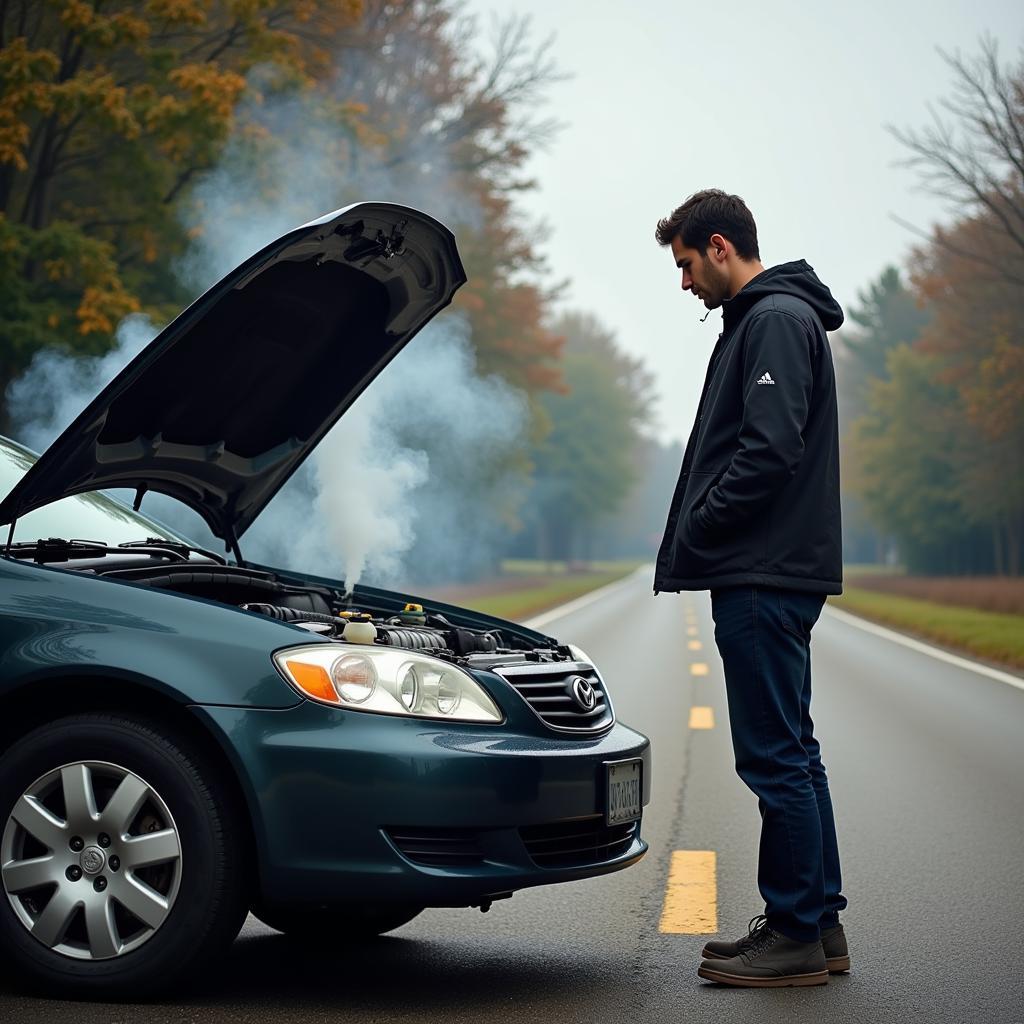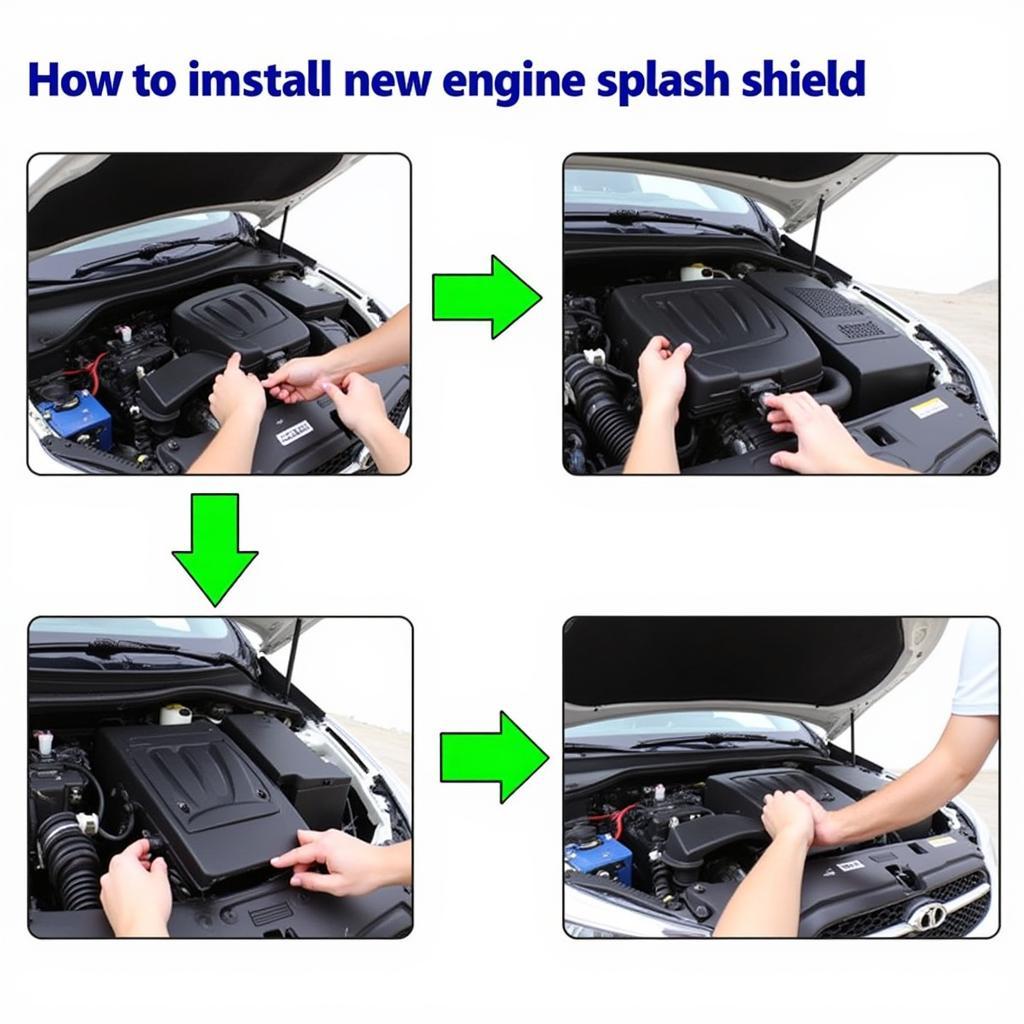When your A/C gets hot then car overheats, it’s a clear sign that something’s amiss and needs immediate attention. This problem often points to a connection between your car’s cooling system and your air conditioning system, which we’ll explore in detail. Ignoring this issue could lead to significant engine damage and costly repairs.
A failing cooling system can affect your car’s A/C performance, often resulting in warm air blowing from the vents, especially when the car is idling or moving slowly. This frequently occurs alongside an overheating engine, indicated by a high-temperature gauge reading or a warning light. Understanding the interconnectedness of these systems is crucial for effective troubleshooting.
Why Your A/C Gets Hot and Your Car Overheats
Several reasons can explain why your A/C gets hot and your car overheats. One common culprit is a low coolant level. Coolant absorbs heat from the engine and the A/C system. When the coolant is low, the system struggles to cool efficiently, leading to overheating and warm A/C air.
Another possibility is a malfunctioning thermostat. The thermostat regulates coolant flow. A stuck-closed thermostat restricts coolant circulation, causing the engine and the A/C system to overheat. Conversely, a stuck-open thermostat can prevent the engine from reaching optimal operating temperature, affecting heater performance but usually not causing overheating.
A faulty radiator fan can also contribute to this problem. The fan draws air through the radiator to dissipate heat. If the fan isn’t working correctly, heat builds up, affecting both the engine and the A/C.
Furthermore, a failing water pump can disrupt coolant circulation. The water pump is responsible for pushing coolant throughout the engine and the A/C system. A faulty pump can lead to inadequate cooling and overheating.
Identifying the Root Cause: A Step-by-Step Guide
- Check the coolant level: Open the coolant reservoir (when the engine is cold) and check the level. If it’s low, add more coolant. However, simply adding coolant might not solve the underlying issue.
- Inspect the thermostat: A mechanic can test the thermostat to ensure it’s opening and closing at the correct temperatures. A faulty thermostat will likely need replacement.
- Examine the radiator fan: Visually inspect the fan for any damage or debris. Check if the fan is running when the engine is hot. If not, it might need replacement or there might be an electrical issue.
- Test the water pump: A mechanic can test the water pump to ensure it’s functioning correctly. A leaking or noisy water pump often indicates a problem.
problems with low mileage cars can sometimes be related to the cooling system as well, albeit less commonly.
Preventing Future Overheating Issues
Regular maintenance is key to preventing future “A C Gets Hot Then Car Overheats Problem” scenarios. Make sure to have your cooling system flushed and refilled according to your car’s maintenance schedule. This helps remove contaminants and ensures the system operates efficiently.
“Regularly checking your coolant levels and ensuring your cooling system is functioning correctly is paramount to preventing overheating, especially during warmer months.” – John Davies, Automotive Engineer
What to Do When Your Car Overheats on the Road
If your car overheats while driving, pull over to a safe location and turn off the engine. Do not attempt to open the radiator cap while the engine is hot, as this can cause severe burns. Wait for the engine to cool down completely before checking the coolant level.
car collision problem physics can sometimes lead to overheating issues if the radiator or other cooling system components are damaged.
Conclusion
The “a c gets hot then car overheats problem” often signifies an issue with your car’s cooling system. Addressing the problem promptly is crucial to avoid costly engine damage. Regular maintenance and prompt attention to any warning signs can prevent this issue and keep your car running smoothly. Connect with us at AutoTipPro at +1 (641) 206-8880 or visit our office at 500 N St Mary’s St, San Antonio, TX 78205, United States for expert assistance with your car troubles.
 Car Overheating Roadside
Car Overheating Roadside
“Ignoring an overheating engine can lead to warped cylinder heads, cracked engine blocks, and even complete engine failure. It’s always better to be safe than sorry.” – Maria Sanchez, Certified Mechanic
car collision physics problem can be complex, but understanding the basics of car maintenance can prevent many issues, including overheating.
inelastic car collision physics problem is a less common concern for everyday drivers, but it’s important to understand the importance of proper car maintenance to avoid issues like overheating.
train car physics problem highlights the importance of physics in understanding vehicle dynamics, but regular car maintenance, such as checking coolant levels, is equally crucial.





Leave a Reply